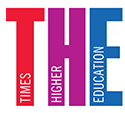Better technology and a global focus may pull the higher education world closer together
From access to basic equipment, technology and quiet working spaces to childcare burdens and job cuts, the pandemic has exacerbated existing disparities among individuals, communities, institutions and countries.
The increased attention on inequalities has also sparked hope that systems and structures will change and that academia will become more inclusive. Universities in emerging economies could be among the beneficiaries.
Some experts have suggested that international partnerships could become more equitable, with institutions in developing countries better able to assert their value and authority within collaborative research projects.
Gerard Postiglione, emeritus professor of higher education at the University of Hong Kong and coordinator of the Consortium for Higher Education Research in Asia, says that two trends which started before Covid-19 but have since accelerated may help emerging countries in this regard.
One is the rapid acceleration of technology, which “makes it possible for developing countries’ universities to enter global knowledge networks” in a way they have not previously. Another is the increasing drive among top universities, higher education systems and governments in developed countries to solve global problems, which makes institutions in other parts of the world even more attractive and useful partners.
Download a free copy of the Emerging Economies University Rankings 2021 digital supplement
But our analysis also highlights the challenges that developing nations in Africa, Asia and Europe will need to overcome, with scholars warning that the pandemic may only increase the gap between research quantity and quality in more and less advanced systems.
The Emerging Economies University Rankings itself was born out of a desire to be more equal. It was designed to highlight countries that were often overlooked in the global league table and to provide universities in such nations a chance to benchmark themselves against peers operating in similar economic environments. The methodology of the World University Rankings was tweaked for this spin-off to reflect the development priorities of universities in emerging economies. The Emerging methodology gives more weight to knowledge transfer and international outlook and less to research influence.
The data behind the 2021 table, our eighth edition, pre-date the Covid-19 crisis, but they suggest which institutions and countries may be best equipped to withstand its effects. China now takes the five top places, up from the top four last year, while institutions in Russia, Taiwan and South Africa remain in the top 10.
But, as our chart shows, China is not the only system that has been rapidly improving. Malaysia, India and Egypt have also made great strides over the past two years.
We look forward to providing more insights as you continue to improve, overcome the effects of the pandemic and become more equal and valued higher education partners.
ellie.bothwell@timeshighereducation.com
Countries/regions represented in the THE Emerging Economies University Rankings 2021
|
Country/region |
No of institutions in ranking |
Top institution |
Rank |
|
China |
91 |
1 |
|
|
India |
63 |
=14 |
|
|
Brazil |
52 |
13 |
|
|
Russian Federation |
48 |
6 |
|
|
Turkey |
43 |
44 |
|
|
Taiwan |
38 |
8 |
|
|
Chile |
21 |
=53 |
|
|
Egypt |
21 |
=94 |
|
|
Czech Republic |
18 |
=64 |
|
|
Thailand |
17 |
80 |
|
|
Mexico |
16 |
=129 |
|
|
Pakistan |
16 |
=105 |
|
|
Malaysia |
15 |
31 |
|
|
Romania |
13 |
201–250 |
|
|
South Africa |
11 |
10 |
|
|
Greece |
10 |
=68 |
|
|
Saudi Arabia |
10 |
16 |
|
|
Colombia |
9 |
=94 |
|
|
Hungary |
9 |
=64 |
|
|
Indonesia |
9 |
=116 |
|
|
Nigeria |
6 |
111 |
|
|
Slovakia |
6 |
201–250 |
|
|
Tunisia |
6 |
351–400 |
|
|
Jordan |
5 |
77 |
|
|
Morocco |
5 |
251–300 |
|
|
United Arab Emirates |
5 |
=20 |
|
|
Lithuania |
4 |
201–250 |
|
|
Cyprus |
3 |
50 |
|
|
Estonia |
3 |
37 |
|
|
Kazakhstan |
3 |
251–300 |
|
|
Latvia |
3 |
=147 |
|
|
Vietnam |
3 |
251–300 |
|
|
Bangladesh |
2 |
351–400 |
|
|
Croatia |
2 |
201–250 |
|
|
Iceland |
2 |
=45 |
|
|
Peru |
2 |
=122 |
|
|
Philippines |
2 |
83 |
|
|
Serbia |
2 |
=162 |
|
|
Slovenia |
2 |
=187 |
|
|
Sri Lanka |
2 |
103 |
|
|
Botswana |
1 |
401–500 |
|
|
Bulgaria |
1 |
401–500 |
|
|
Ghana |
1 |
251–300 |
|
|
Kenya |
1 |
201–250 |
|
|
Kuwait |
1 |
251–300 |
|
|
Malta |
1 |
=177 |
|
|
Oman |
1 |
175 |
|
|
Qatar |
1 |
26 |

0 Comments